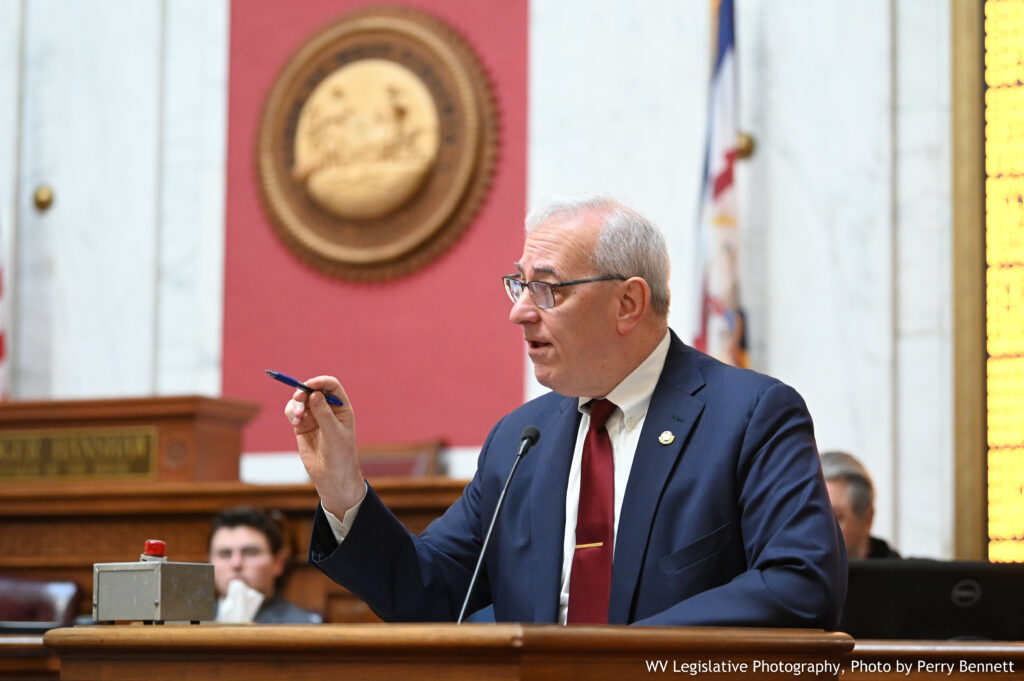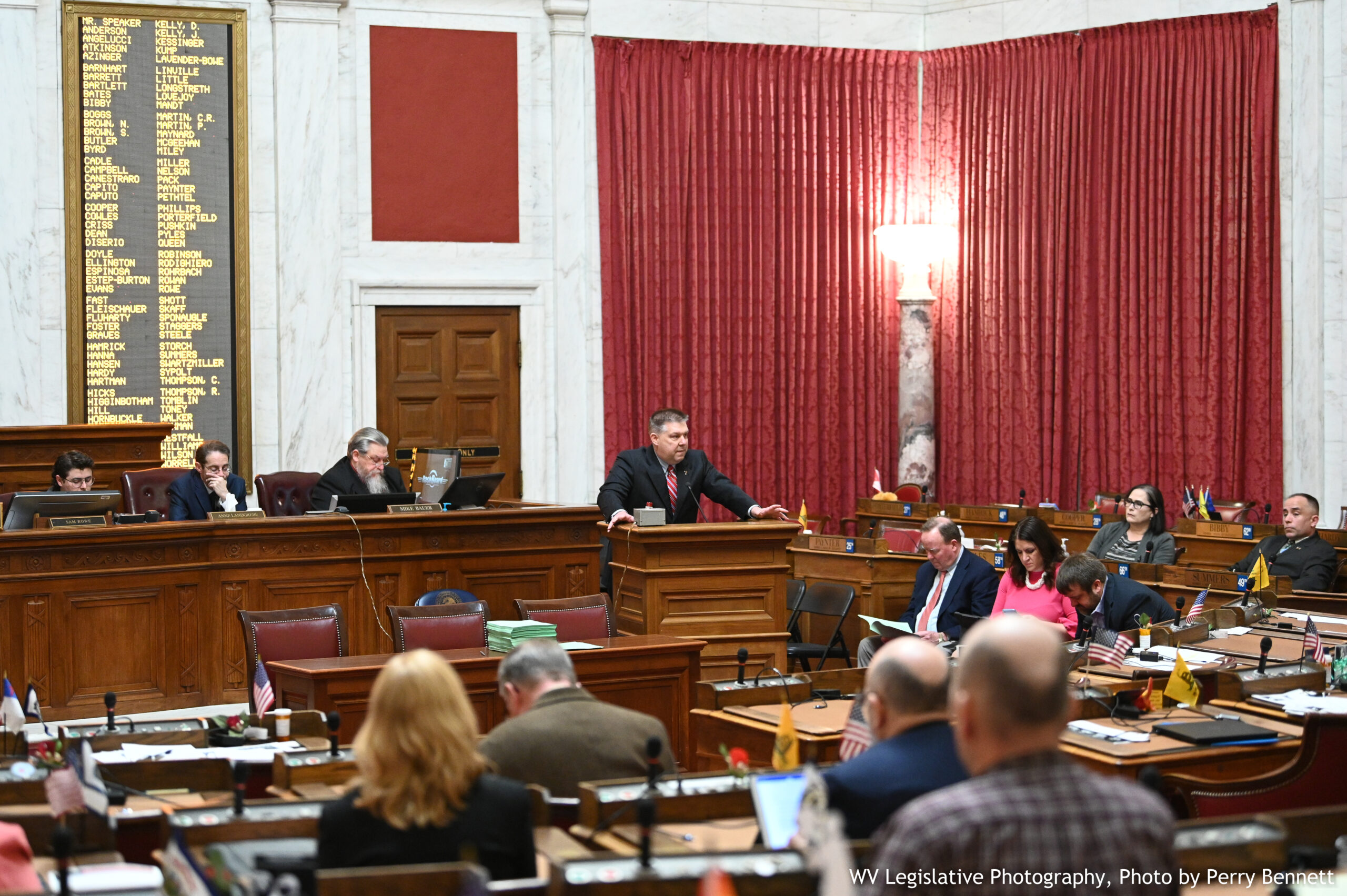CHARLESTON — The House Judiciary Committee has been the graveyard for Senate Intermediate Court of Appeals bills. An intermediate court bill passed the Senate 23-11 in 2018 and died in House Judiciary. Another one from the governor passed the Senate 17-16 in 2019 and died again in House Judiciary.
This year’s bill, SB 275, may clear that hurdle. House Judiciary held a public hearing on it Thursday morning and will take it up at Friday’s meeting.
The hearing drew 24 people: 15 to oppose the bill, nine to support it.
As background, the court would handle appeals of circuit court civil cases, guardianship and conservatorship cases; family court decisions; contested administrative agency decisions; and Worker’s Comp Board of Review decisions. It will not handle criminal or juvenile proceedings, child abuse and neglect or mental hygiene proceedings, or appeals from the Public Service commission, among others.
The estimated startup cost would be $7.6 million in 2021, with annual costs thereafter at $6.34 million. The cost would be offset by elimination of the Office of Judges for Worker’s Comp cases, at a savings of $2.6 million.

On the opposing side, Pat Jacobs, an attorney who has represented Workers Comp claimants for 40 years, said West Virginia has one of the best litigation processes in the nation. Experienced and talented administrative law judges handle the cases. “It would be a sad day in West Virginia for this to be dismantled.”
Kristina Whiteaker spoke for the West Virginia Association for Justice, a claimant attorneys organization. The Supreme Court has no case backlog, she said. Civil appeals make up just a small percentage of the court’s total caseload.
Also, she said, administrative appeals won’t make much of a dent in the Kanawha County Circuit Court’s caseload; they make up just 175 of its 5,000 annual cases.
Another lawyer, Scott Windom, handles oil and cases for land and mineral owners. He said big oil and gas firms want the court to use it as club against the small folk, to grind out cases and reduce or eliminate settlements. He was one of several who said the court will favor big businesses with deep pockets who want to drag out cases at the expense of the small folk with less money.
Gary Zuckett, with West Virginia Citizen Action Group, Sam Hickman, with National Association of Social Workers – West Virginia, and Patti Hamilton, representing seniors, were among those who said that the intermediate court bill reflects misguided spending priorities.

Money should be spent on roads, children, seniors and the substance abuse crisis, they said. Senate Finance in its budget bill just pulled $10 million of the $19 million dedicated by the governor to eliminate the 1,000-person IDD Waiver list to pay for the court. (Finance chair Craig Blair has defended that action, saying the bill is a work in progress and the governor’s budget proposal left no wiggle room for “improvements.”)
On the supporting side, Greg Thomas, with the American Tort Reform Association, said employers and healthcare providers look for an intermediate court when considering where to locate businesses. The current practice of issuing a written opinion on every appeal is just an internal policy not a matter of state law. “That is definitely something that hurts us.”
Brian Dayton, with the West Virginia Chamber of Commerce, said 41 states have intermediate courts, West Virginia is the largest without one. A strong review system creates a stable body of law. The intermediate court will free the Supreme Court to focus on important opinions and help circuit courts across the state facing backlogs.
Danielle Waltz, representing the U.S. Chamber of Commerce Institute for Legal Reform, commented on the remarks of some opponents who said circuit courts don’t have a case backlog that could be relieved by this bill. She said, they do, citing her own experience: She’s still waiting on court action on a 2015 case, which is stuck behind someone else’s 2014 case.
Several supporters yielded their time to Senate Judiciary chair Charles Trump, R-Morgan and a leading advocate for the bill. “Senate Bill 275 is an important bill for the future of West Virginia,” he said.
He cited studies performed under and supported by Democrat governors in 1998 and 2009 that recommended an intermediate court.
While the number of cases coming before the Supreme Court has dropped, he said, the court is actually busier than ever. During the years 2006-2010, the court averaged 134 decisions per year, turning away all the rest. Under its new policy of issuing a written decision for every appeal, during the span 2011-2015, the court issued 1,000 decisions per year.
The intermediate court would expedite appeals allow the Supreme Court to focus on fewer, more important cases at its discretion.
Commenting on the dollars, he said, “There is cost but justice is not free.
He also commented on complaints by a couple opponents who said that the decision to not have the intermediate court handle criminal appeals shows that the bill is all about catering to big money.
Criminal and child neglect cases are the most important cases, he said, and should go directly to the Supreme Court without an intermediate step and additional delay.
TWITTER @dbeardtdp Email David Beard at dbeard@dominionpost.com




